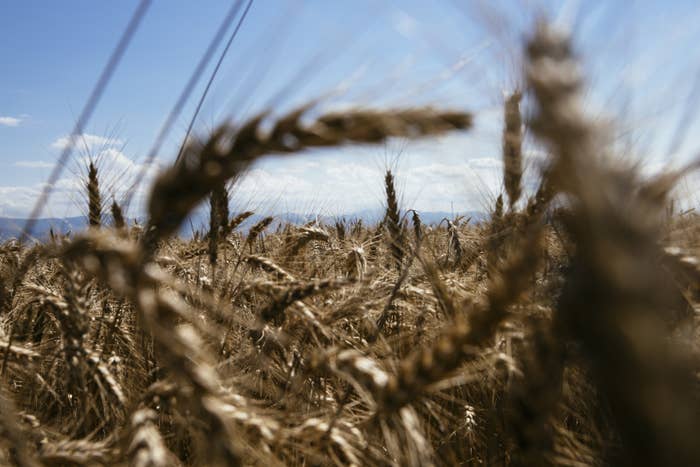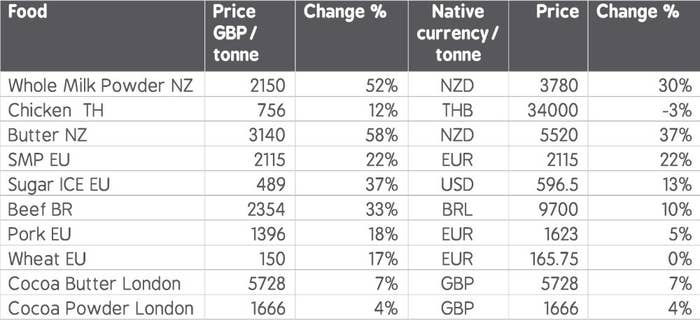
Britain's food producers are facing price hikes of more than 50% on some key ingredients since the UK voted to leave the EU, figures obtained by BuzzFeed News reveal.
This week, Unilever, the producer of brands including Marmite, PG Tips, and Lynx, had a public row with Tesco after Unilever sought price hikes of around 10%, blaming higher costs post-Brexit. Newspapers and commentators suggested the company, which backed Remain, may be trying to profiteer off the back of Brexit.
However, the data suggests the wholesale cost in sterling of many key foodstuffs has increased substantially since June. The new figures, produced by the data consultancy firm Mintec, compare the prices of key ingredients today to the day before the Brexit vote in June.
The Mintec figures suggest a tonne of New Zealand butter costs 58% more than it did in June, while sugar costs 37% more, beef is up 33%, pork is up 18%, and wheat is up 17%.

This table shows the change since the EU referendum in the price of a selection of foodstuffs. The left-hand columns show the price changes in pound sterling, while the right-hand column shows the price change in the foodstuff's native currency.
For everything except cocoa – which is traded in sterling – the UK has seen bigger price rises.
The key driver of many of the increased prices is the drop in the value of the pound, which has fallen around 17% since the day of the EU referendum.
These figures don't mean prices on the supermarket shelf will go up this dramatically, or immediately. Food suppliers generally agree contracts with fixed prices for around six months or so, which delays the impact of price rises.
Consumer prices will also rise by less than this as ingredients are just one of many costs in the supply chain. However, within around a year or so price changes are passed to the consumer.
Helen Dickinson, CEO of the British Retail Consortium, which represents supermarkets and retailers, tacitly acknowledged in an emailed press release on Thursday that there is "inflationary" pressure in the food supply chain, and said retailers will not be able to absorb it.
"Retailers are firmly on the side of consumers in negotiating with suppliers and improving efficiencies in the supply chain to control the inflationary pressure that is building through the devaluation of the pound," she said.
"However, years of falling shop prices and higher costs have left limited scope for retailers to continue absorbing this pressure, and everyone in the supply chain will need to play their part in maintaining low prices for consumers.”
A food supplier contacted by BuzzFeed News confirmed the pressure.
“The reality is that costs are increasing for every supplier," he said. "Right now, every supplier is having a debate about what to do.”
Mintec noted that the food sector would be particularly affected by the weakened pound.
"For UK exporters, a weaker GBP is positive in the short term as it makes British products more competitive on the global market, driving higher demand," it noted in a blog post.
"On the flip side, goods imported into the UK would be more expensive. Around 40% of all food consumed in the UK is imported, with over 70% of total food and drink imports from the EU."
